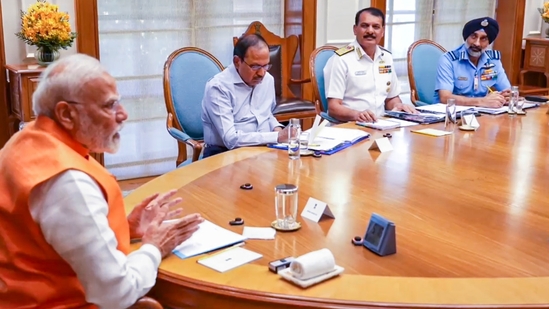In the aftermath of the Pahalgam incident, India’s hasty attribution of blame to Pakistan without presenting concrete evidence raises serious concerns—not only about the integrity of the investigation, but also about the broader implications for regional peace.
Whilst no one denies the need for vigilance against cross-border threats, playing the blame card too early and too often is like putting the cart before the horse. It risks undermining both justice and diplomacy.
One of the most glaring shortcomings in the scenario was the premature blame-shifting. Even before facts had been verified or evidence was made public, the Indian government and certain media houses jumped the gun and declared Pakistan guilty.
This knee-jerk reaction created a trial by media, where public perception was shaped more by sensational headlines than verified truth. The media, instead of acting as a watchdog, turned into a loudspeaker for unverified claims—amplifying suspicions and silencing scrutiny.
Moreover, the investigation failed to critically examine domestic vulnerabilities. Ignoring the potential involvement of local actors or insurgents already operating in the region was a major oversight.
In a place like Kashmir, where political discontent and militancy have a long history, it would be naïve to rule out internal threats. But rather than peeling back the layers of this complex reality, the focus remained fixated across the border.
Adding insult to injury, there was little emphasis on the actual security situation within the area. Pahalgam lies in a region that demands tight surveillance and active coordination among security agencies.
Yet, the incident exposed poor surveillance, unmonitored access points, and communication breakdowns—factors that should have been at the forefront of the investigation. Instead, they were conveniently swept under the rug.
Equally concerning was the absence of any call for independent or international oversight. In incidents of such magnitude, neutrality brings legitimacy.
An impartial investigation could have helped establish facts beyond doubt and potentially eased tensions. But the refusal to allow such oversight only adds to suspicions that the truth may be more complex than the official narrative suggests.
Another troubling element was the inconsistency in official statements. Different arms of the Indian establishment offered varying accounts of the timeline, the suspects, and even the nature of the attack. These contradictions weakened the government’s credibility and left the public guessing. In such matters, mixed signals do more harm than good.
Moreover, the diplomatic response leaned heavily on confrontation rather than cooperation. There was no effort to engage Pakistan in a joint inquiry or use regional platforms to address the issue through dialogue.
Instead, the old blame game was revived—an approach that may win applause at home but does little to resolve the underlying tensions. One can’t help but wonder whether this strategy is more about political point-scoring than pursuing justice.
This pattern—of turning incidents into political footballs—isn’t new, but it is dangerous. It diverts attention from institutional weaknesses, fuels public outrage without basis, and pushes peace even further out of reach.
As the saying goes, when you point one finger, three point back at you. By externalizing every crisis, India risks ignoring the systemic reforms that are urgently needed within.
Ultimately, if India aspires to be a responsible regional actor, it must hold itself to higher standards of accountability and fairness. It cannot afford to let emotion override evidence or politics override peace.
A credible investigation rooted in transparency, cooperation, and balance is not just the need of the hour—it is the only path forward.
📍 English Language Educator | Blogger & Content Strategist | 7+ Years in Educational Blogging
Nosheen Bashir is a dedicated English teacher and experienced blogger with over seven years of expertise in content creation and educational writing. Passionate about language, literature, and effective communication, she combines her teaching experience with blogging skills to create insightful, research-backed content that helps learners and educators alike.
🔹 Expertise & Achievements:
✔ English Language Education: A skilled educator with years of experience in teaching English grammar, literature, and communication skills to students of varying levels.
✔ Educational Blogging: Running a successful blog for 7+ years, delivering well-structured, engaging content on language learning, writing techniques, and academic success.
✔ SEO & Content Strategy: Specializes in creating high-ranking, authoritative articles that follow Google’s EEAT principles, ensuring content that is both informative and search-friendly.
✔ Student-Centric Approach: Committed to making English easier, engaging, and accessible, helping readers and students improve their language proficiency.
🚀 With a passion for teaching and writing, Nosheen Bashir is dedicated to crafting educational content that empowers students, teachers, and language enthusiasts worldwide.









